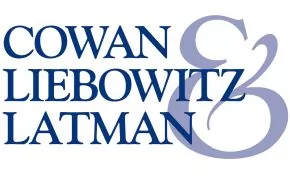Can different parties register TABLEAU as a service mark for restaurant, bar, and cocktail lounge services on the one hand, and as a trademark for wine on the other hand?

Caymus Vineyards applied to register TABLEAU for "wine" claiming use in commerce since November 15, 2017.
The Examining Attorney refused this application on the basis that there was a likelihood of confusion with the previously registered mark TABLEAU for "restaurant and bar services; cocktail lounges" with claimed first use as of April 28, 2005.
On appeal, the Trademark Trial and Appeal Board ("TTAB") affirmed this refusal of registration.
Regarding the marks, there was no dispute that the marks were identical and had no demonstrated meaning or significance in the context of "wine" or for Registrant's services. On the issue of mark strength, the cited registration did not claim acquired distinctiveness through use. Further, there was only limited evidence of third-party use of the TABLEAU mark. The TTAB thus presumed the registered mark to be inherently distinctive.
Regarding relatedness of wine and restaurant services, Applicant argued that "something more" than identical (or similar) marks was required, to establish relatedness. The TTAB rejected this argument, because it was clear that bars and cocktail lounges focus on serving alcoholic beverages such as Applicant's wine, supporting an inherent relationship between wine and these services.
Additionally, evidence of more than twenty-five combined registrations, websites and Internet articles involving third parties offering both wine and restaurant services under the same mark provided "something more," if required.
Applicant highlighted that there was no evidence that Registrant's establishments sold Applicant's wine, or that Applicant offered restaurant services at its winery. However, the TTAB stated that parties need not be direct competitors; they only need to be producing goods and services that are related, from the point of view of consumers.
In the absence of trade channel or distribution method limits in either the application or the cited registration, the TTAB concluded that the channels of trade overlapped and were offered to the same classes of purchaser.
Accordingly, the TTAB affirmed the Examining Attorney's refusal of registration.
In re Caymus Vineyards, Application No. 97040804 (T.T.A.B. February 22, 2024).
Author's Note:
In our previous article In Choosing a Beverage Trademark, Consider Existing Marks for Related Products, we suggested that, when you choose a trademark for an alcoholic beverage, you should consider existing trademarks for non-alcoholic beverages to avoid a likelihood of confusion.
The Caymus case broadens this to suggest that, when you choose a trademark for an alcoholic beverage, consideration of existing marks for bar services, cocktail lounges, and possibly restaurants is advisable.
The reverse also may follow: When you choose a mark for a bar, cocktail lounge, or restaurant, review of existing trademarks for alcoholic and non-alcoholic beverages is prudent, to avoid a likelihood of confusion.
The content of this article is intended to provide a general guide to the subject matter. Specialist advice should be sought about your specific circumstances.

